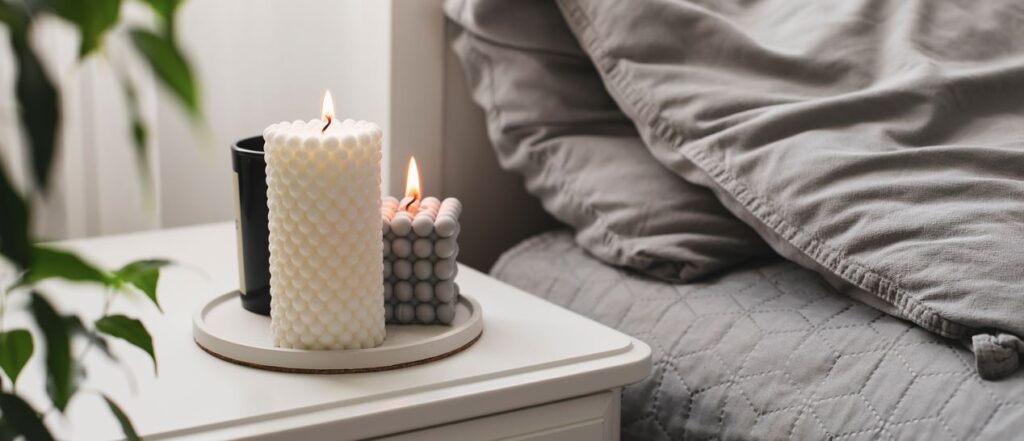Indoor Air Quality (IAQ) are you familiar with this phrase? Unlike the Air Quality Index (AQI), referring to the outdoor air quality, which many are familiar with simply by listening to the local news, we are not so familiar with our own indoor air quality. This is a very unfortunate situation.
As an organic house cleaning service in Northern New Jersey, we know how important it is to use non-toxic and eco-friendly cleaning products to keep your home clean and healthy. Join us as we dive into the world of indoor air quality and learn how to create a healthier living environment for you and your loved ones.

How Clean Is Your Air?
Have you ever wondered how clean the air inside your home really is? You might be surprised to learn that indoor air can be up to five times more polluted than outdoor air. According to the Environmental Protection Agency (EPA), indoor air pollution is one of the top five environmental health risks.
There are many sources of indoor air pollution, including cleaning products, air fresheners, and even your furniture and carpets. Traditional cleaning products and air fresheners often contain chemicals that can release harmful fumes into the air, such as volatile organic compounds (VOCs), which can irritate the eyes, nose, and throat, and cause headaches, dizziness, and other health problems.
In addition to cleaning products and air fresheners, other sources of indoor air pollution include:
- Tobacco smoke
- Pet dander
- Mold and mildew
- Dust mites
- Radon
- Carbon monoxide
The effects of poor indoor air quality can be serious, especially for people with asthma, allergies, or other respiratory conditions. Children, the elderly, and pregnant women are also at higher risk. Even if you don’t have any health problems, improving your indoor air quality can help you feel more comfortable and improve your overall well-being.
How can you find out how clean the air in your home really is?
One way is to test it using an indoor air quality monitor. These devices can measure the levels of pollutants in your air and give you a better understanding of your indoor air quality. If you don’t have an air quality monitor, there are other signs that your air quality might be poor, such as:
- Lingering odors from cleaning products or air fresheners
- Mold or mildew growth
- Excessive dust
If you notice any of these signs, it might be time to take steps to improve your indoor air quality. In the next section, we’ll explore some of the ways that cleaning products and air fresheners can impact your air quality and offer tips on how to choose safer alternatives.
Poor indoor air quality has many side effects such as:
- Skin Dryness or Irritation
- Sneezing
- Coughing
- Difficulty Breathing, allergy or asthma symptoms
- Headaches
- Nausea
- Inability to sleep
- Dry or irritated skin, eyes, or throat
Why are we seeing a rise in poor Indoor Air Quality?
Homes today tend to seal in the air in an attempt to save energy and reduce leaks. Sounds like a smart idea right? Wrong, this means less ventilation throughout raising the chances of those harmful pollutants that should be exiting the home to stick around and literally make you sick . This is one reason, but now let’s look a little further.
Household Chemical Cleaners meant to clean and disinfect are polluting our air. They are filled with ingredients you can’t pronounce, Candles, we all love candles, but not all candles are meant to burn indoors. Carpets, upholstered furniture and our curtains to name a few are filled with Formaldehydes, And let’s not forget those wonderful air fresheners both aerosol and plug-ins. What is really lurking inside those products that claim to freshen your air, when all they are really doing is masking bad smells which equates to poor IAQ! Let’s be honest if you want fresh air open a few windows, YES even in the winter, perhaps especially in the winter when our homes are buttoned up keeping the cold and fresh air out, and keeping the pollutants in!
So, what is one to do? How do we solve a real problem that seems to be ignored?
Here Are 7 small changes That will have enormous results
1. Purge Harmful Products:
Empty out your cabinets of all those harmful cleaning products and go NATURAL. White vinegar, baking soda, a good dish detergent and an essential oil such as citrus, peppermint, or clove to name a few, and you will have all you need to clean and disinfect your home, all while starting the process of CLEANING YOUR AIR.
2. Get Rid Of Commercial Air Fresheners:
NO MORE air fresheners unless you make your own. Simple as can be: a small glass mist bottle, water and your favorite essential oil. A few drops mixed with water into your misting bottle there you have it, FRESH and Healthy air freshener. Buy a few bottles and leave one in each bathroom, keep them out in the open so you and your guests can freshen the air at any time.

3. Clean Candle Swap:
Switch to a clean burning candle such as beeswax, no more black soot or pollutants in your home.
4. Mark Your Calendar:
Change your HVAC air filters monthly.
5. Avoid Volatile Organic Compounds
When choosing your furnishings look for products that specify low VOC (Volatile Organic Compounds).

6. Give your home a chance to air out….
Turn down the heat, open a few windows to get cross ventilation going and bring in fresh crisp air, I guarantee you will smell the freshness. This is particularly true if you have the opportunity to open the windows and leave your house for even 20 minutes, when you return the smell will be even more apparent.
7. Test Your Air Quality
For anyone who is looking to get an actual reading on your IAQ, there are VOC Sensors that are used to quantify the levels of various Volatile Organic Compounds. These sensors can also detect the levels of pollutants such as Formaldehyde.
With these very simple changes, You Will improve the air you and your family breathe
To sum things up; replace your chemical cleaners with natural choices, throw away your store bought air fresheners and make your own, switch to a clean burning candle, change your HVAC filters monthly, be aware of VOC levels in your purchases, open up your windows and let the air flow in!
And one final but VERY important message, for all of us who have four legged family members, our choice of cleaners, sprays, candles and even essential oils should always be pet friendly!
I would love to hear your thoughts. Leave a comment below and tell me whether you agree or disagree and why.
